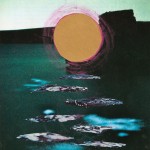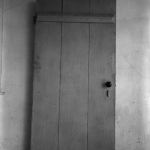Beloved God, Ancient Hunter, Quiet Shaman:
The first time you came to me was when I was in college, long before I ever learned who you were. I had a dream in which all people naturally grew antlers, but we all shaved them off. One of my friends–a very spiritual, mildly odd character–left his on, though, and in the dream I admired them and thought that I really should grow out my own. Back then, the only version of you I knew about was the Horned God of Wicca–but he was anonymous, described in only the vaguest terms in my Llewellyn books, and I thought (rightly, I think) that he was adapted from Pan. When I woke up the morning after the dream, I had no clue where all the antlers had come from or what they meant. All I knew was that I’d had a numinous experience. I knew something special had reached out to me.
(What does it mean that the person in my dream has since stagnated spiritually? What does it mean that he was the one with the antlers, and yet later lost his faith and became odd in an unpleasant way? Probably that spirituality isn’t a fixed quality, the way it’s depicted in stories; as one person’s spirituality waxes, another’s can wane.)
Sometimes it feels fine to call you the “Horned God.” Other times it feels distracting. Antlers aren’t horns; don’t Wiccans watch The Brain Scoop? Horns are permanent fixtures, but antlers grow and fall off, grow and fall off, every single year: a powerful meditation on impermanence. A mature stag spends as much energy growing his antlers as a doe spends growing a fetus. Then the antlers fall off. All that work for just one season of mating–and then, the next year, the stag does it all again. The Celts crafted beautiful artifacts and then threw them into bogs. They knew your mystery, Cernunnos: that you work, you pour love and effort into a thing, you craft it to perfection, and then…you let it go.
On the Gundestrup Cauldron, sweet Cernunnos, you’re seated like the Buddha. Even if the Celts never encountered Buddhism, the parallel is as apparent to me as a rune. You teach us about embracing cycles. You show us Friend Snake, symbol of rebirth. Hoof and horn, hoof and horn, all that dies shall be reborn.
My teacher once told us that when practitioners encounter a deity, that encounter is like the parable of the blind men feeling the elephant. One person feels the tail, another the trunk, and each walks away with a significantly different perception of the animal. Other Pagans write and sing about your aspects as hunter and sun god, and while I don’t doubt for a second that their perceptions are valid, those aren’t the aspects you’ve ever presented to me. When I experience you, Cernunnos, I see you in the forest, so silent and gentle that the animals come up to sniff. Oh, they say. You’re one of us.
After a fashion, you reply.
Remember the time, my beloved god, when I closed my eyes in the garden and you told me that the first thing I saw when I opened them would be your symbol? But I was looking at my nasturtiums when I closed my eyes, I thought. I already know what I’ll see when I open them. I tried it anyway. My eyes had moved while closed and I saw a pipe sticking out of the roof of the house next door. I’d never noticed that pipe. It was a perfect phallus.
I thought of the jacaranda tree a few yards away, preparing to burst into riotous blossom for spring.
Together, you and I praise the Goddess. You wander her surface, you fertilize her soil, you make love to her through the bees. You die and come back, die and come back. You, god of death, hold a plump, jingling purse. From the corpses of the dead come seedlings; from the pelts of the slain comes wealth. Corn and grain, corn and grain, all that falls shall rise again.
On my altar, your image is nestled between Isis and the Morrígan: Goddess of Life, Goddess of Death, and He Who Straddles the Two. (I know, that’s an astounding oversimplification, but Isis and the Morrígan will get their own love notes.)
You don the costume of the animals, wise shaman, and make them love you enough to give you their lives.
Same with witches like me.
May you be happy, dear deity. May you be well. May you be praised and remembered always.











